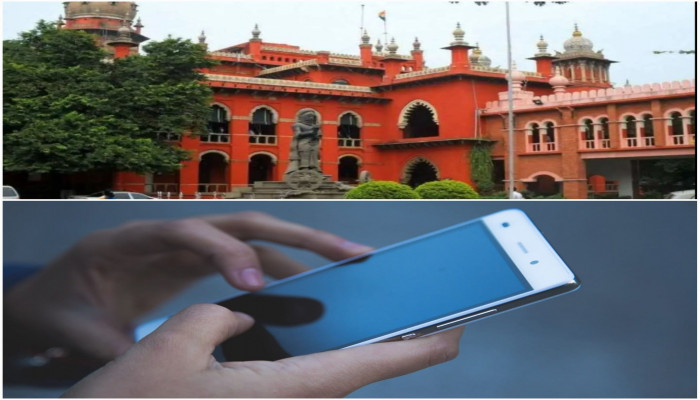Madras High Court slams SIT for seizing mobile phones of journalists
- In Reports
- 01:32 PM, Feb 07, 2025
- Myind Staff
The Madras High Court slammed the all-women Special Investigation Team (SIT) for seizing the mobile phones of journalists covering the Anna University sexual assault case. In its ruling, the court upheld press freedom, stating that the fear of surveillance threatens the media, which is a vital 4th pillar of democracy.
“Forcing journalists to provide access to their personal and private data and asking them to reveal private and confidential information is nothing but assaulting the press and oppressing them with the fear of surveillance,” said Justice G K Ilanthiraiyan, saying press freedom and privacy are fundamentally correlated.
Four journalists filed a petition in the court challenging the SIT's action. The journalists claimed that their smartphones were confiscated and that they faced a series of intrusive questions about both their personal and professional lives. They were also pressured to reveal their sources regarding the alleged “leak” of the FIR in the case.
The court reaffirmed that journalists are safeguarded against such intrusions under the Press Council Act. Quoting the order, it stated, “Even then, the investigation agency compelled the petitioners to produce their devices and seized the same. In fact, those devices had no information relating to the registration of FIR and uploading the FIR in the public domain.” The petition further alleged that journalists “were also threatened that mobile phone will be seized unless they provide a screenshot of news items circulated by one of the crime reporters.”
The Special Investigation Team (SIT) was probing the alleged sexual assault of an engineering student at Anna University. During the investigation, journalists were summoned and asked to respond to over 50 questions. However, the court observed that many of these questions contradicted the case. Reporters were interrogated about their foreign travels, personal assets, and the properties owned by their family members, along with other private matters.
Justice Ilanthiraiyan expressed reviewing the questionnaire, “Perusal of the questionnaire served on the petitioners revealed that most of the questions were found in relation to the private information about the petitioners, and it is a clear violation of the right to privacy guaranteed under the Constitution of India. The private information such as their social media handles, personal details of their friends, relatives, kith and kin, their confidential sources, etc. Privacy is an essential part of human dignity and personal liberty, which protects an individual’s freedom to make choices and control their life.”
The court observed that the actions of the SIT were excessive and unjustified, stating that the investigators had exceeded their legal authority.
A central issue in the case was the alleged “leak” of the FIR in a sensitive sexual assault matter, which the SIT argued was the reason for confiscating the journalists' devices. However, the court identified significant shortcomings in the SIT’s handling of the investigation.
“During the investigation, the SIT did not even inquire about the author of the FIR and the persons who had uploaded the FIR to the official portal. Further, they were not issued any summons… It is very unfortunate to state that the police person simply said that due to technical glitches while registering the FIR, the FIR was uploaded to the police’s official web portal. Therefore, without even examining the person who had uploaded the FIR to the official website and the person who authored the FIR, they enquired the petitioners. Further, without any authorisation of the author of the FIR, the FIR could not have been uploaded to the official website,” the order stated.
The court's order indicated that the responsibility for the FIR leak might rest within the police department rather than with the journalists. It also acknowledged that the SIT’s actions had a chilling effect on press freedom. As a result, the court directed the SIT to complete its inquiry into the journalists by February 10, return their confiscated phones and other devices, and refrain from asking personal questions.
Additionally, the court instructed the SIT to document the inquiry proceedings in both the general and case diaries. It also barred the SIT from using the inquiry as a pretext to harass the journalists or ask irrelevant questions unrelated to the FIR leak.
Last month, the Supreme Court put a hold on the Madras High Court’s directive for a departmental inquiry into the FIR leak. However, the apex court described “the leak” as a serious violation of the survivor’s rights while hearing an appeal filed by the Tamil Nadu government.
The case had caused a political stir in the state in December, eventually leading to the arrest of 37-year-old Gnanasekaran, a roadside biryani vendor. The BJP and AIADMK spearheaded the Opposition’s criticism of the ruling DMK, alleging that the accused had political connections, a claim that the DMK firmly denied.







Comments